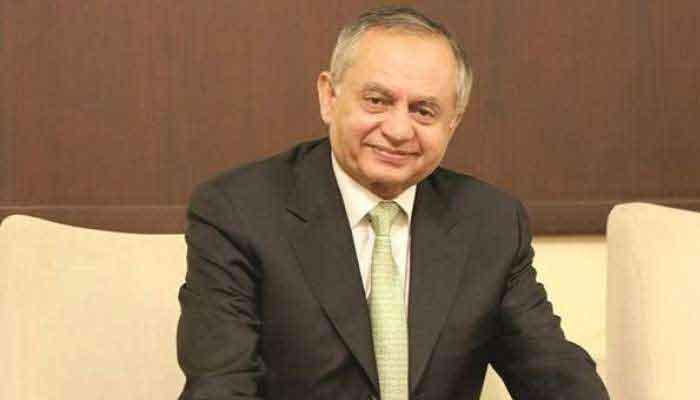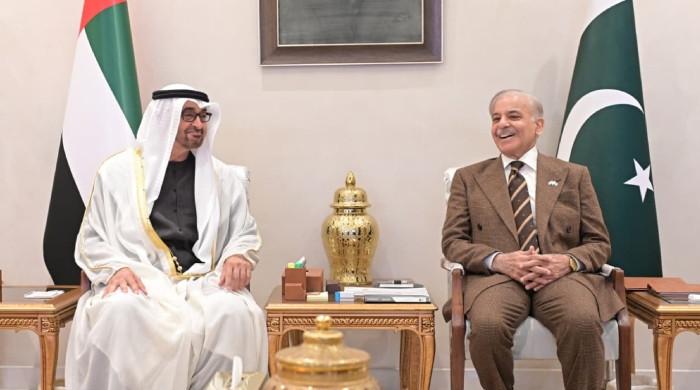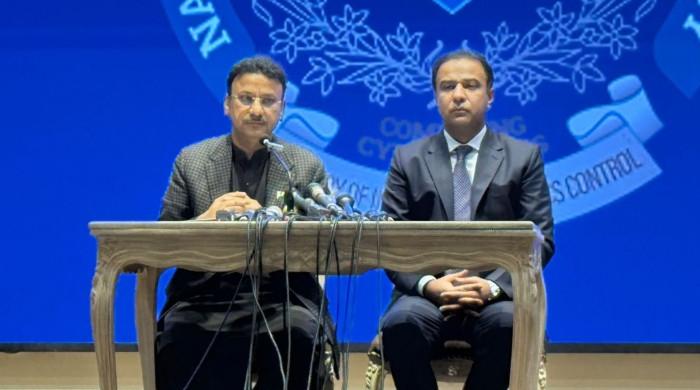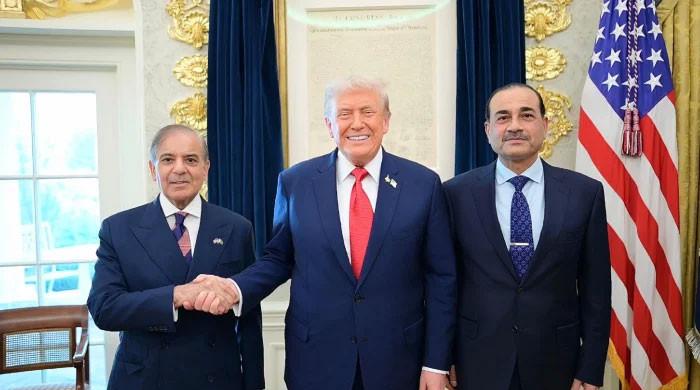Razak Dawood says Pakistan now on its way to industrialisation
Diversification in textile exports has gained momentum because of the massive value addition taking place, says the adviser
December 24, 2020

- "Export to China after FTA-phase II has jacked up by 30% in November"
- The cotton production has alarmingly gone down this year to 7 million bales from 14 million bales
- Exports in services have also increased by 46% in five months of the current financial year, says the adviser
ISLAMABAD: Adviser to PM on Commerce and Investment Abdul Razak Dawood on Wednesday said that Pakistan’s industries are now running close to their 100% capacity and the country is on its way to industrialisation.
In an exclusive interview with The News, Razak Dawood said it is more important to note that the process to expand the industrial base has kickstarted in Pakistan which is quite visible by the increasing imports of machinery.
“This means that the country, which was two years ago on the mode of de-industrialisation, is now on its way to industrialisation,” he claimed.
He said the country’s curve of industrial activities after momentum in the wake of the government’s incentives has hit a plateau but will further go up after the expansion of the existing industrial base.
Read more: Remarkable turnaround in Pakistan economy despite COVID-19, says PM
“The government has provided Rs100 billion worth TERF (temporary economic refinance facility) to the business community for import of machinery to achieve sustainable industrialisation," he said.
"And in a welcoming development, many industrialists have started importing machinery under that initiative. Under the said facility, the liquidity to the business community is available at 5% interest rate. The industrialists can avail TERF initiative till March 31, 2021."
Growth in services sector
The commerce adviser said that export to China after FTA-phase II has jacked up by 30% in November despite the adverse ramifications of COVID-19.
“And more importantly, exports in services have also increased by 46% in five months of the current financial year. The exports to the US, UK, and Australia have soared by 16% each in the first five months and to Korea by 15%. The exports to ASEAN courtiers and Africa are also on the rise,” he told the publication.
Read more: Pakistan's active taxpayers list crosses 3m benchmark for the first time
Concerns over decline in cotton production
Dawood, however, said that because of the disastrous decline in cotton production, Pakistan’s industrialists will have to import five million cotton bales worth $1.2 billion to meet the textile export orders.
The cotton production has alarmingly gone down this year to 7 million bales from 14 million bales which cannot cater to the requirement of the textile industry.
Prime Minister Imran Khan, according to the report, has geared up special efforts to focus on increasing the cotton yield next time and the government is on its toes to regain the target of 14 million cotton bales so that the maximum potential of the textile sector could be exploited.
Read more: Govt may extend date to avail amnesty scheme for developers, builders
The commerce adviser said after the 18th Amendment, the required emphasis to the agriculture sector was not given. The farmers’ community is sick of the low-quality seeds and pesticides causing low productivity.
“Now the government will step up its efforts to ensure the provision of quality seeds and pesticides to enhance the crop yields.”
Dawood added that diversification in textile exports has gained momentum because of the massive value addition taking place. To encourage the value-added products for textile exports, the government will continue to provide the incentives in the shape of DLTL (drawbacks of local taxes and levies). However, the facility will not be available for the export of yarn and grey cloth.
He said that the government has trimmed 10% duty on import of yarn to 5% by doing away with the 5% regulatory duty. However, 5% customs duty on import of yarn will continue to be there.









